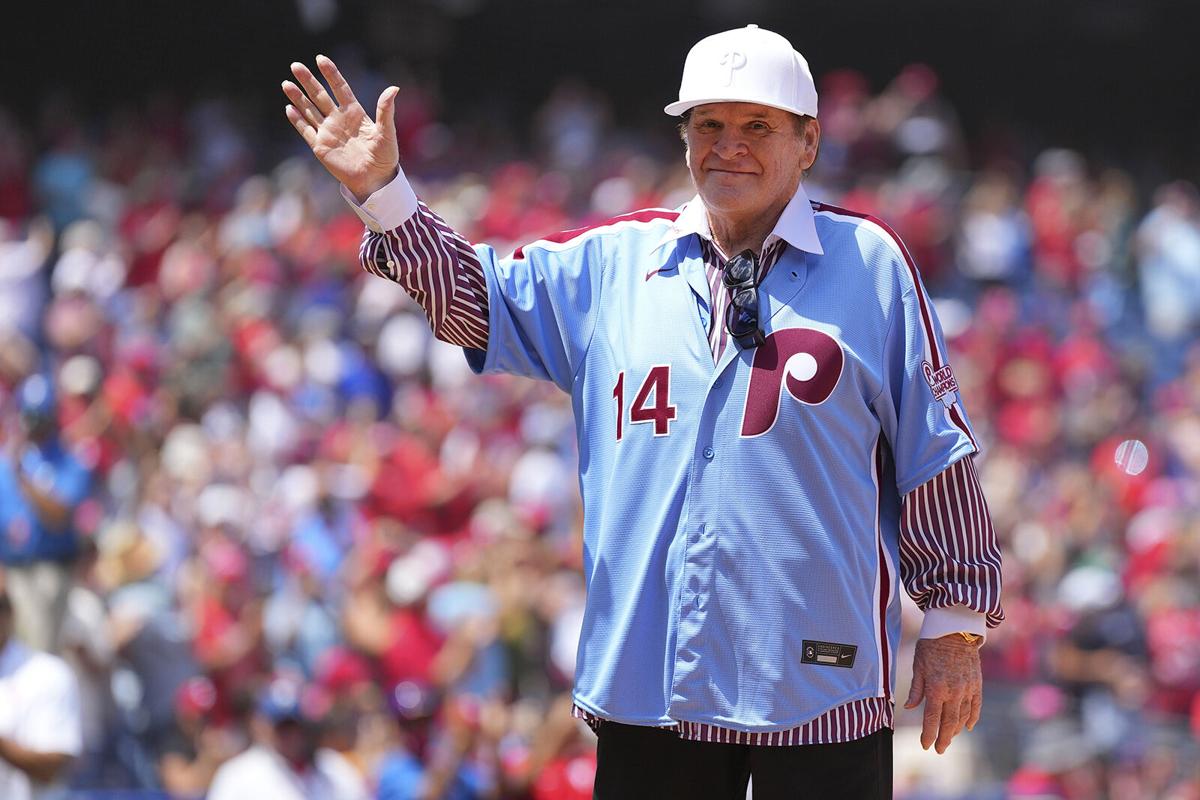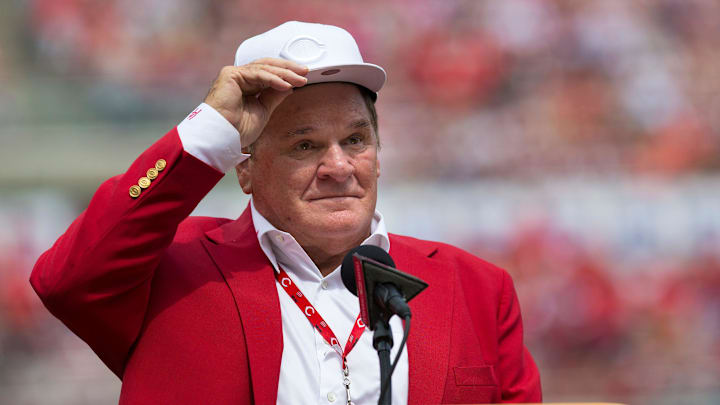
Pete Rose Reinstated: Hall of Fame Hope Rekindled After Lifetime Ban Ends
It finally happened.
More than three decades after Pete Rose was banned from baseball, the legendary hitter is now eligible for the Hall of Fame. But here’s the twist—it happened after he passed away.
In a landmark decision on Tuesday, Major League Baseball officially removed Rose from its permanently ineligible list. That means the all-time hits leader is no longer shut out from baseball’s highest honor: induction into the National Baseball Hall of Fame.
But that’s not all. “Shoeless” Joe Jackson, along with several others previously banned, also had their names cleared. The decision was part of a sweeping policy change led by Commissioner Rob Manfred. According to MLB, from now on, any person on the permanently ineligible list will be removed after their death.
And just like that, the game changed.
What Triggered Pete Rose’s Reinstatement?
Rose’s daughter, Fawn Rose, filed a formal petition on January 8, 2025. A couple months later, former President Donald Trump threw his support behind the cause, posting about it on Truth Social and even meeting privately with Commissioner Manfred in April.
Behind the scenes, Los Angeles attorney Jeffrey Lenkov was working pro bono with the Rose family. He had been quietly coordinating with MLB for years. That effort finally paid off.
“This is a historic moment,” Lenkov said. “Pete wanted a chance to be judged on his baseball legacy. Now, he has that opportunity.”
What Exactly Did Pete Rose Do?
Let’s rewind a bit.
Back in 1989, Rose was managing the Cincinnati Reds when MLB launched an investigation. The result? A 225-page report from investigator John Dowd that concluded Rose had been betting on Reds games. While Rose denied it for years, he finally came clean in his 2004 book, My Prison Without Bars. Not only did he admit betting on baseball, but he even started selling signed balls that read, “Sorry I bet on baseball.”
He didn’t just bet for fun. Rose admitted he gambled to feel that old rush again—something he missed after retiring as a player. He claimed he never bet against his team, only for them to win. But for MLB, betting while being a manager violated Rule 21(d), one of the league’s oldest and strictest policies.
That rule still holds today, even with the rise of legalized sports betting in the U.S.
Why Did MLB Change Its Policy?
It’s simple—death changes things.
In his official letter, Manfred explained that a deceased person cannot possibly pose a future threat to the integrity of the game. So, while the original lifetime ban was meant to protect baseball, keeping someone on that list after they’re gone no longer serves that purpose.
He also pointed out something else: a ban that truly lasts a lifetime, without any forgiveness or redemption, is one of the harshest penalties imaginable.
Rose’s death on September 30, 2024, gave MLB a reason to reconsider. And now, it’s policy: once someone passes away, their ineligibility ends.
Along with Rose and Jackson, 15 other deceased players and one owner were also removed from the list. This includes other members of the 1919 Black Sox Scandal like Eddie Cicotte and Buck Weaver.
So, Is Pete Rose in the Hall of Fame Now?
Not yet.
While Rose is now eligible, he can’t be considered for induction until December 2027. That’s when the Classic Baseball Era Committee meets next. This group votes on players who made their biggest impact before 1980.
To get in, Rose will need 12 out of 16 votes. It won’t be automatic. But the door is finally open.
He’s not eligible for the Baseball Writers Association of America ballot, which only considers players whose careers ended within 15 years of voting. Rose retired in 1986 and was set to hit the ballot in 1992, but the Hall of Fame created a rule in 1991 excluding anyone on the ineligible list.
Now that he’s off it, the Hall confirmed he qualifies under its guidelines.
What Are Pete Rose’s Hall of Fame Credentials?
The numbers speak for themselves.
- 4,256 career hits (an all-time record)
- 3,562 games played (most ever)
- 15,890 plate appearances
- 14,053 at-bats
- .303 career batting average
- .375 on-base percentage
- 17-time All-Star
- 3 World Series titles
- 1 MVP award (1973)
- NL Rookie of the Year (1963)
- 3 batting titles
- 44-game hitting streak (second only to Joe DiMaggio)
And that’s just the surface.
Nicknamed “Charlie Hustle,” Rose was known for sprinting to first base on walks and never taking a play off. He gave everything he had to the game and was one of the most beloved players in Cincinnati history—at least until the betting scandal broke.
Now, many fans believe it’s time to judge Pete Rose for what he did on the field, not off it.
What Was Trump’s Role?
Former President Donald Trump didn’t shy away from the issue. On February 28, 2025, he blasted MLB on social media for not inducting Rose during his lifetime. He later promised to issue a “complete pardon” for Rose, even though no legal pardon was required for reinstatement.
Still, the post added national pressure.
A few weeks later, Trump met privately with Manfred at the White House. They didn’t say what was discussed, but shortly after, MLB’s decision came down.
Whether Trump’s involvement swayed the commissioner or not, it certainly brought more attention to Rose’s case.
Popular Categories





